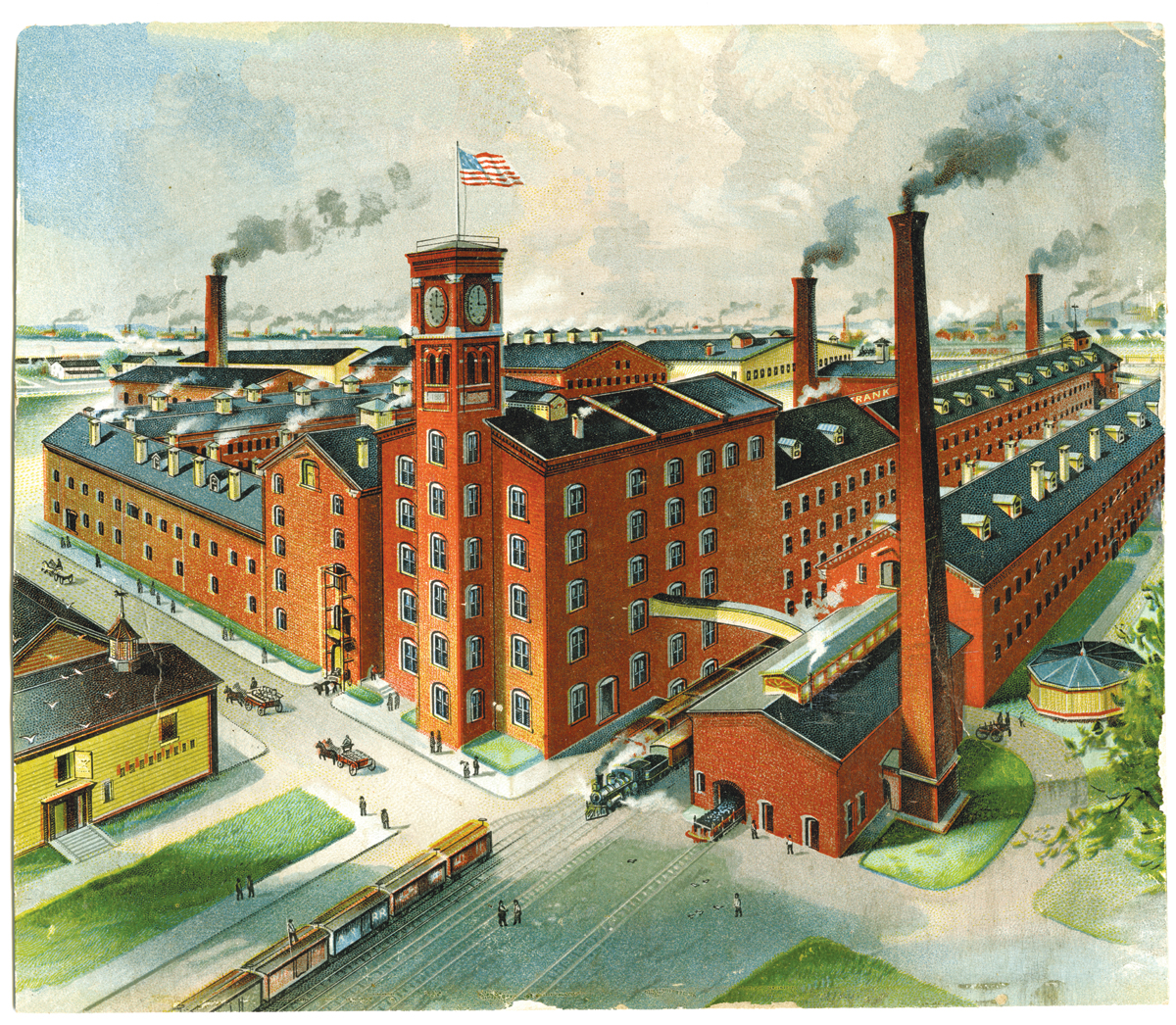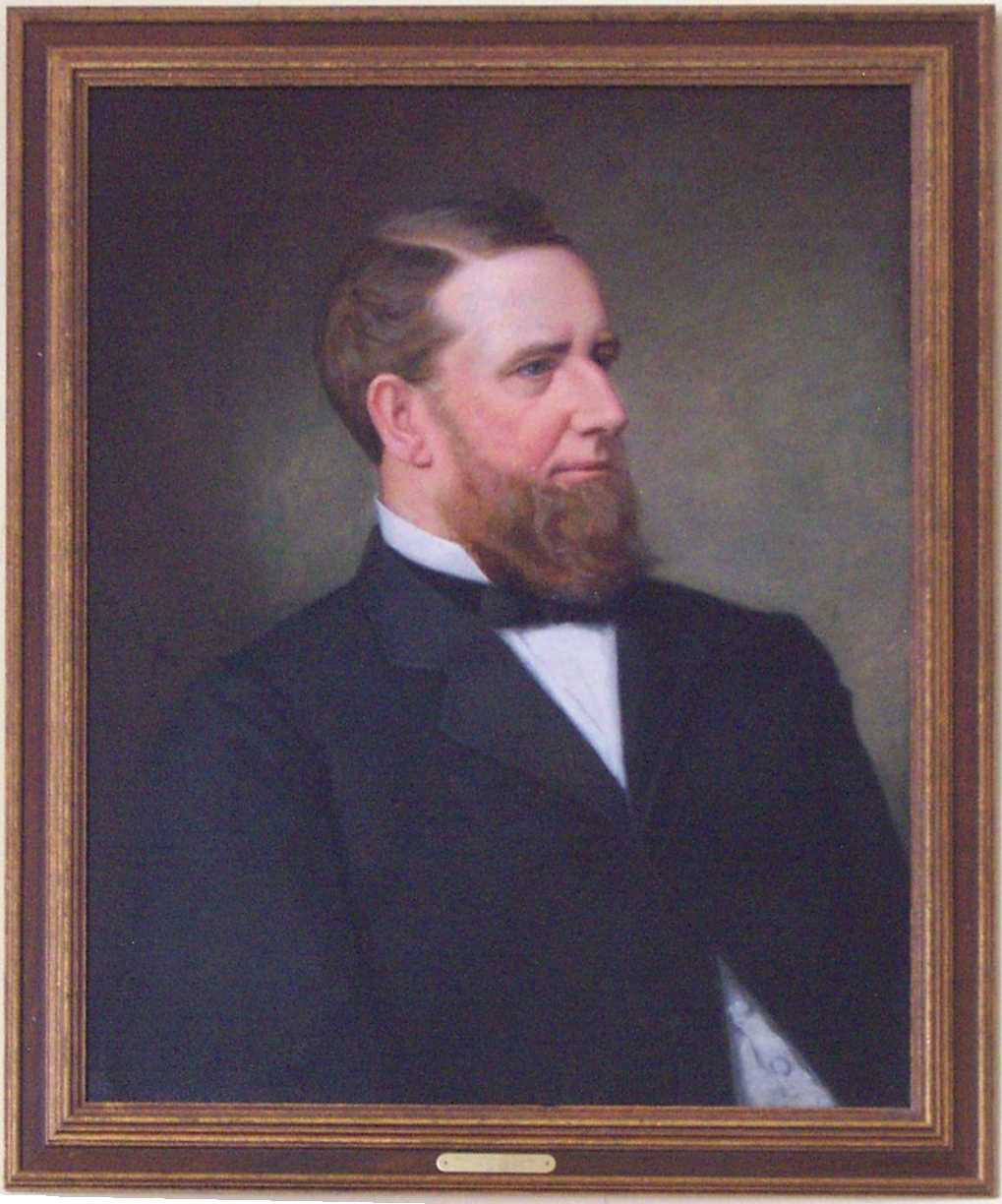Frank Jones Exhibit, Portsmouth, New Hampshire
September 14-November 20, 2010
I am sorry, but you missed this exhibit. Please go visit the Portsmouth Athenaeum in Portsmouth, New Hampshire to see what is on display now.
 |
Interested in learning more about Frank Jones? The Portsmouth Athenaeum in Portsmouth, New Hampshire has a current exhibit on Jones! Titled "Nothing by Halves: The Life of Frank Jones" the exhibit opened September 14. Visitors can stop by the Athenaeum, located at 9 Market Square, every Tuesday, Thursday and Saturday from 1 p.m. to 4 p.m. until Nov. 20. (Illustrations courtesy of the Portsmouth Athenaeum.)  |
The official announcement:
PORTSMOUTH, N.H. -- The name of a new exhibit on a legendary brewer, businessman and man about town says it all: Nothing by Halves: The Life of Frank Jones.
"He lived life to the fullest," says Richard Adams, who is curating the free exhibit that opens Sept. 14 at the Portsmouth Athenaeum. "Everything he did was at full throttle."
Born in Barrington in 1832, Jones came to Portsmouth at 17 to peddle pots, pans and tinware from a wagon. Within a decade, he had bought out a local brewer and was on his way to becoming the largest producer of ale in the United States.
At its peak, the Frank Jones Brewery in Portsmouth employed over 500 people and produced 250,000 barrels per year. Jones built hotels, started water companies, owned the largest shoe factory in the world in the 1880s and was president of the Boston & Maine Railroad. He was elected mayor of Portsmouth in 1868 and 1869 and served in Congress from 1875 to 1879.
"He was a man of many dimensions and phenomenal energy who succeeded at virtually everything he undertook," Adams said.
Jones was a man who enjoyed his wealth. His 1,000-acre farm on Maplewood Avenue extended at least from the current intersection of Market Street Extension and Woodbury Avenue all the way to the Interstate 95 rotary and west into part of what is now Pease International Tradeport.
"He had ponds, gazebos and bridges over streams, all carefully manicured," Adams said. "At the peak of the summer season, he had 200 people working there. He welcomed people from Portsmouth to come and walk the grounds and visit. He had greenhouses where he grew exotic plants. He loved to have people see that."
Jones eventually owned a string of racehorses and opened the Granite State Trotting Park in Dover. He owned a yacht, the Navis, and spent his summers in Sorrento, Maine, a posh retreat he developed.
"Many of the houses are still there," Adams said of the area on Frenchman's Bay, across from Bar Harbor.
Just a half-mile from the house Jones shared with his wife, Martha, was the home he built for his mistress, Delana B. Curtis. Jones had met Curtis in Washington, D.C., when he was serving in Congress. The two began a relationship that spanned three decades. Jones died in 1902; Curtis sued his estate for $400,000 the following year.
"She came to the courthouse in Portsmouth and caused quite a stir," Adams said. "The day of the hearing, the courthouse was packed with women dying for a chance to look at her. She was dressed in black, as if in mourning."
The Manchester Daily Mirror and American reported that Curtis settled in December 1904 for $140,000 in cash, legal fees and $35,000 for the house in Sorrento.
"When I went to court the other day, the way in which people looked at me was something dreadful," Curtis told a female reporter who visited her house on Manchester's Elm Street after the case was settled. "I never thought a woman could go through so much and live."
The Athenaeum exhibit includes many photographs, including those of Curtis, Jones, his wife, Martha, and adopted daughter, Emma, as well as pictures of his vast estate and the brewery buildings off Portsmouth's Islington Street.
Portsmouth restaurateur Rusty Hammer has loaned the exhibit bottles and kegs produced in Jones' time, as well as advertising material that includes beautiful young women drinking beer "to convey the message that beer was a genteel beverage that anyone could drink," Adams said.
